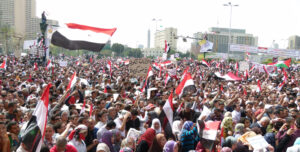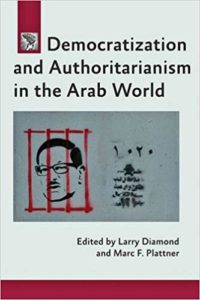

January 2021, Volume 32, Issue 1
The Arab Spring at 10: Kings or People?
A decade ago, Arab peoples stood up and sought to replace their rulers with a more democratic political project. But Arab autocrats have a project of their own. Can the people gain ground in the struggle for self-government, or will their rulers bear it away?

